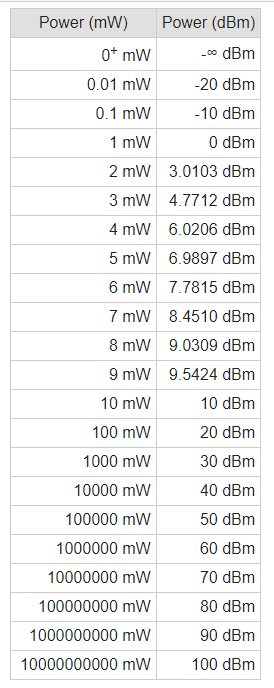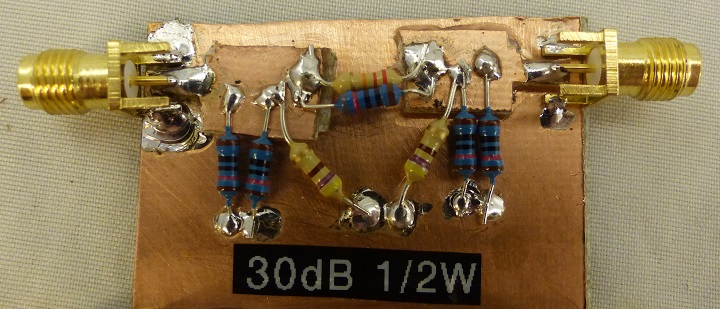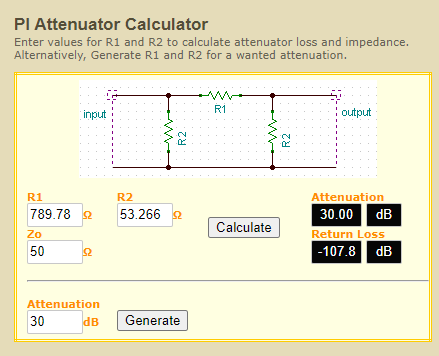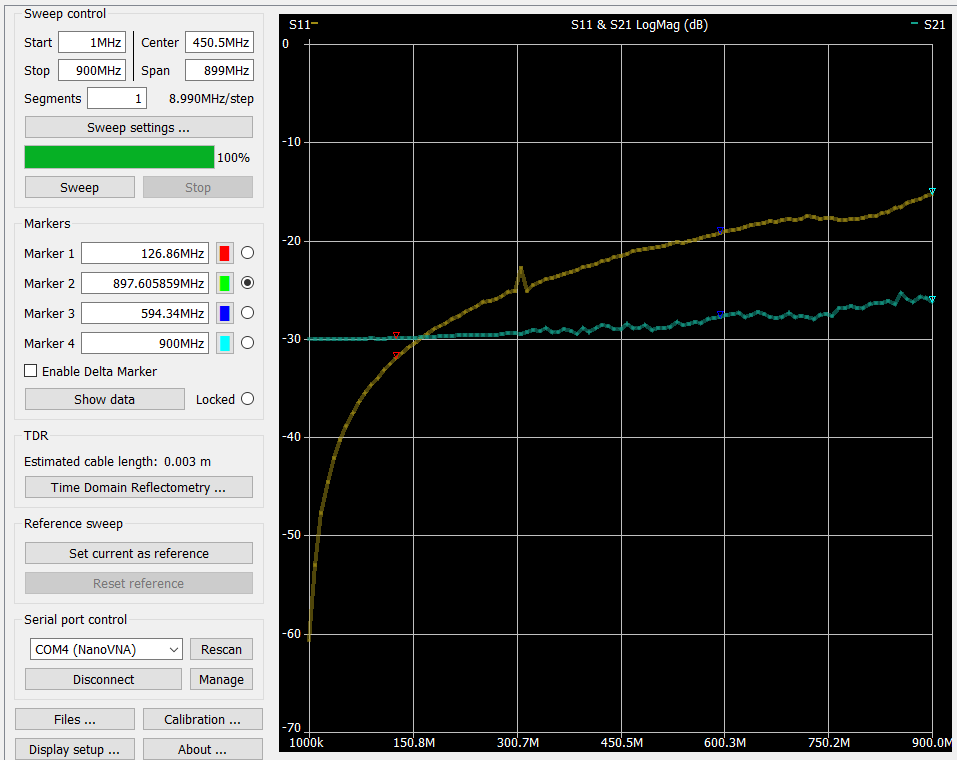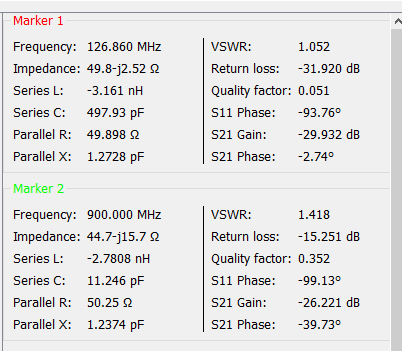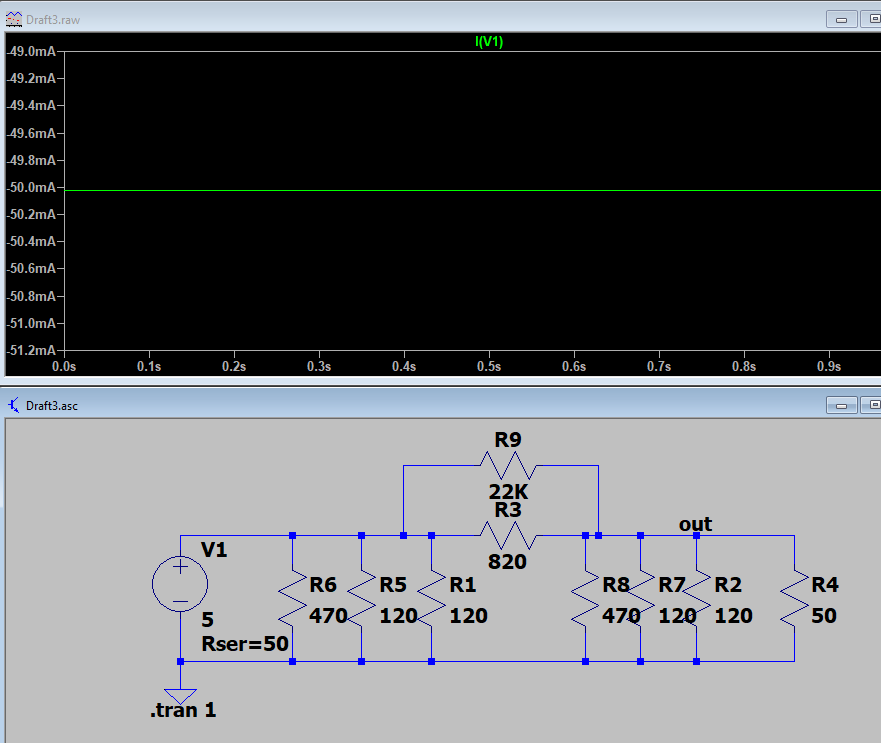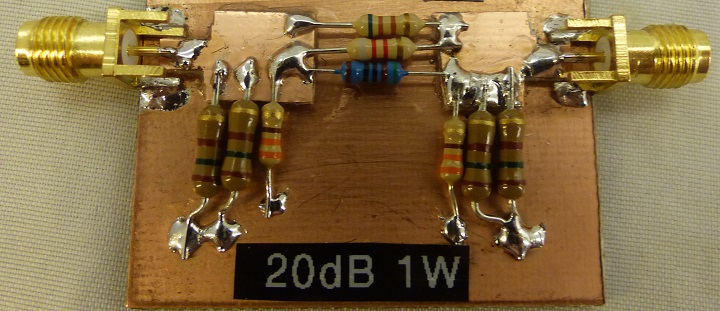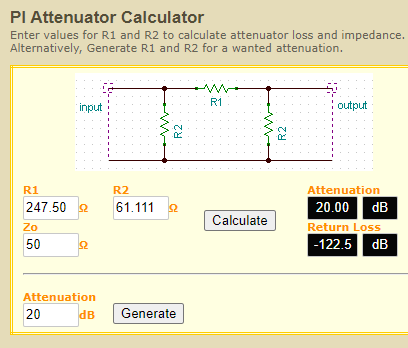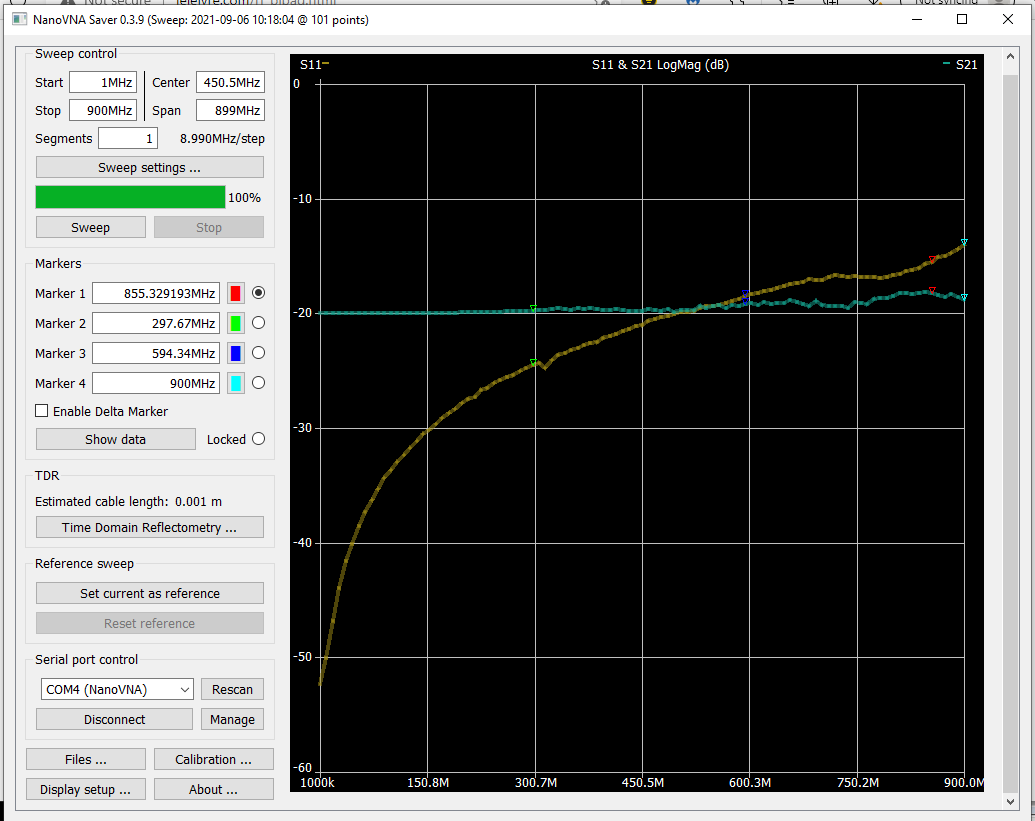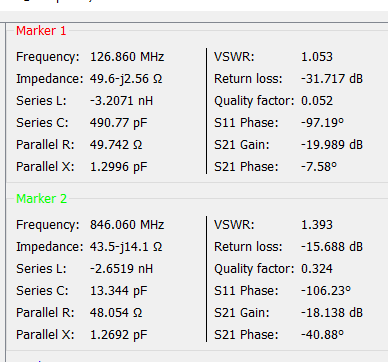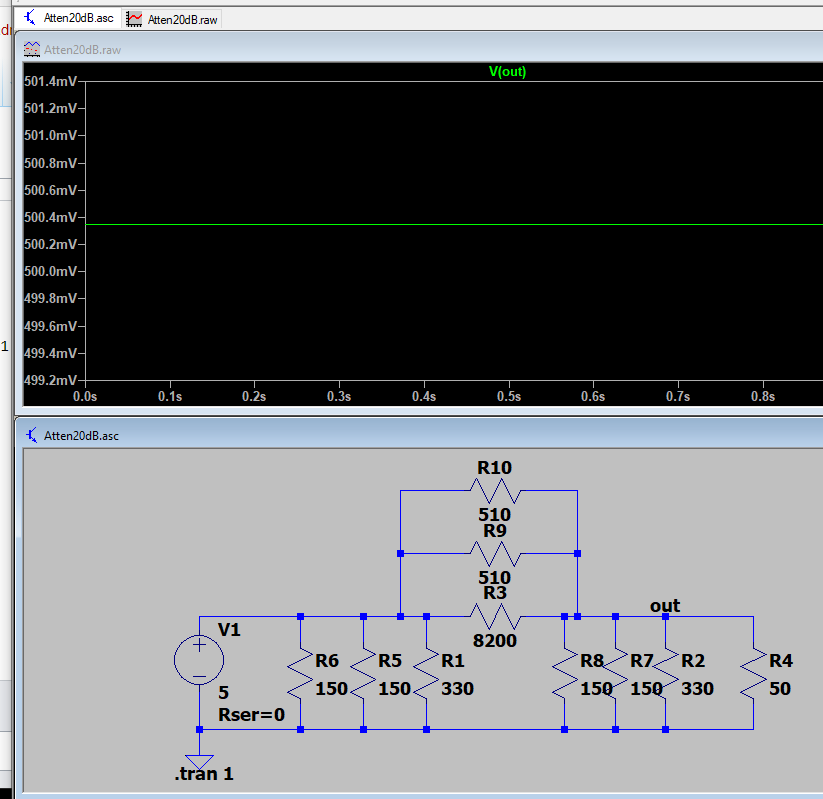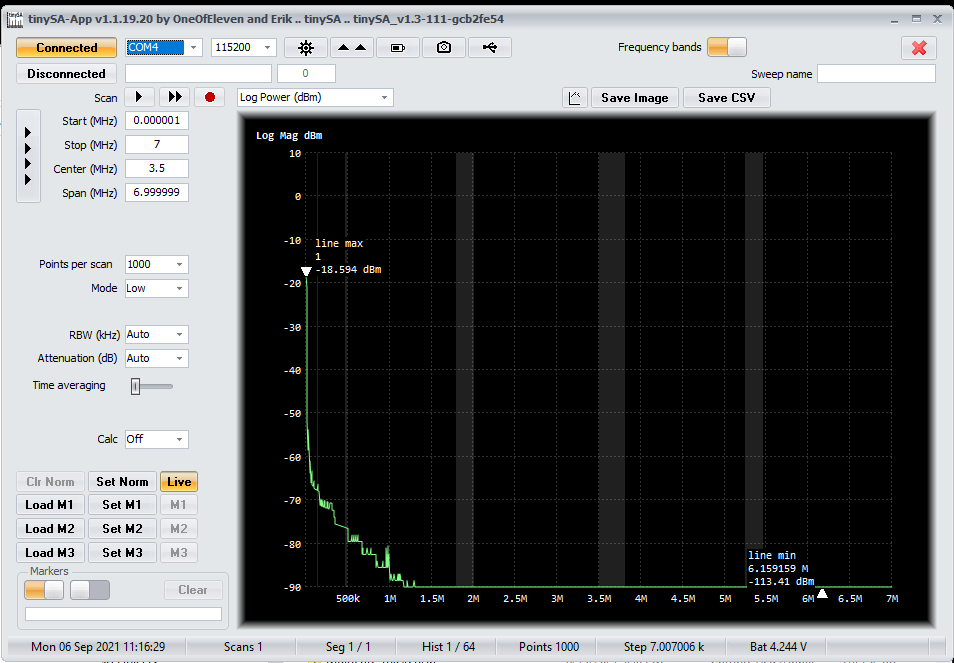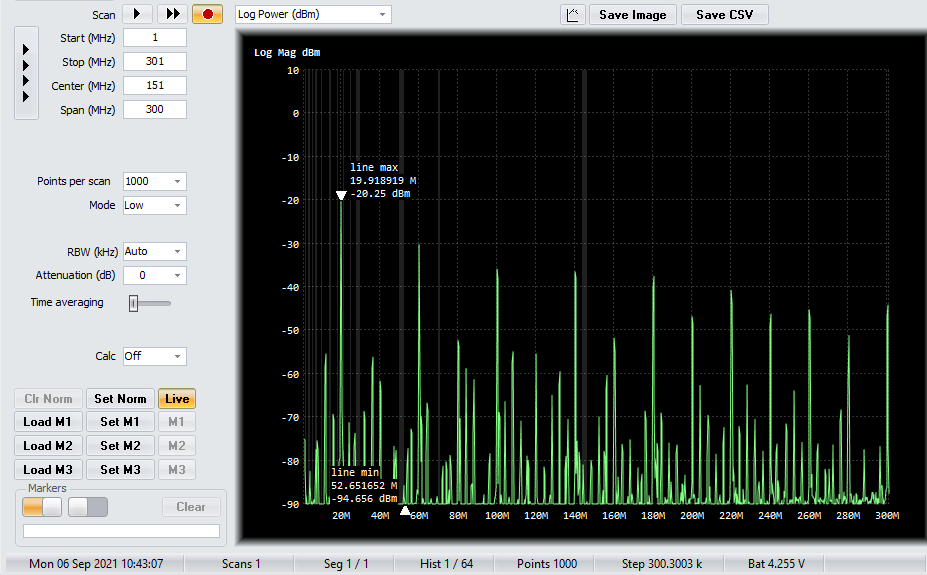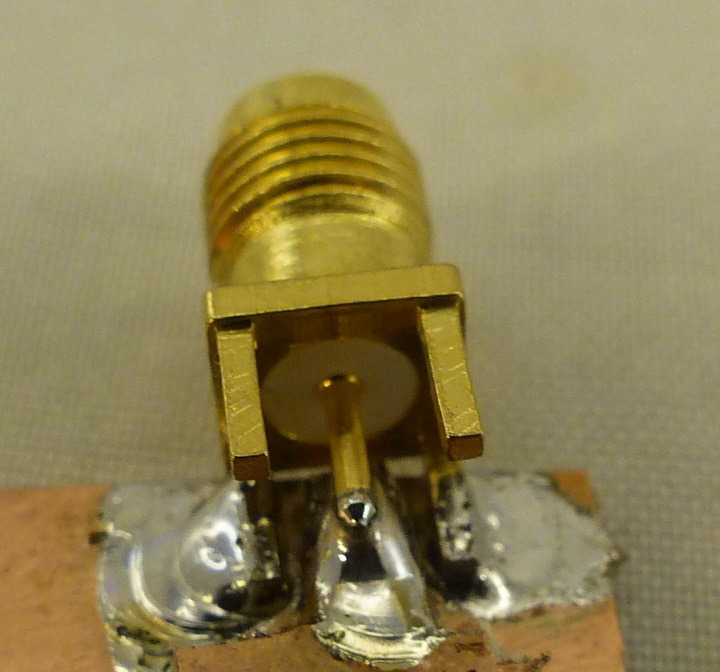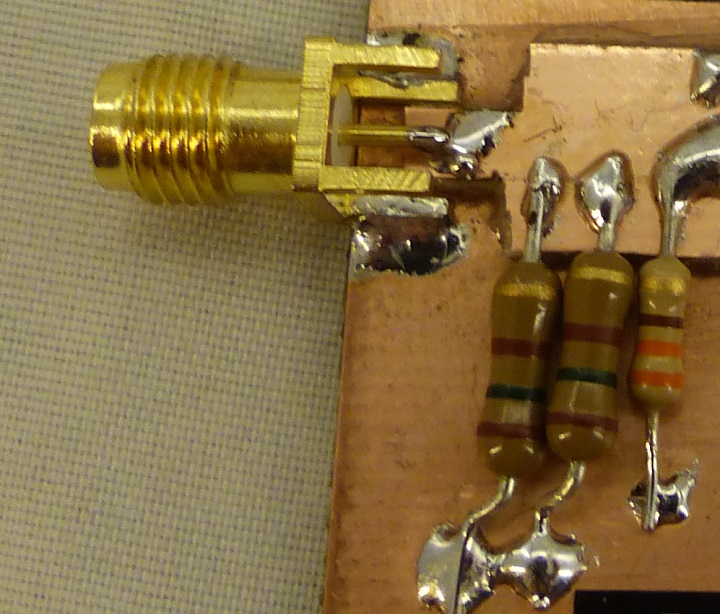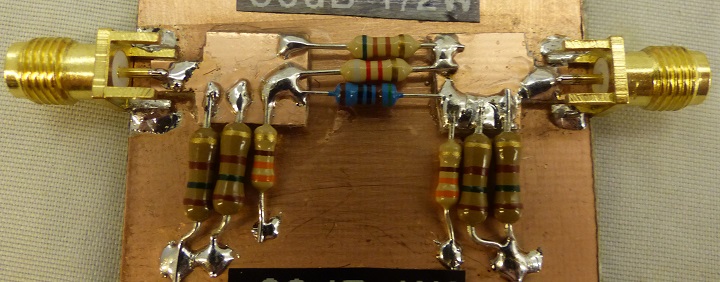TinySA
Contents
TinySA - Spectrum Analyzer - Specifications
User interface
- Display resolution 320*240 pixels
- Screen diagonal 2.8"
- 16 bits per RGB pixels
- Resistive touch control
- Jog switch control
- USB serial port control
- Optional TTL USART port (SW not yet implemented) on the internal PCB
- Linear power supply to avoid switching noise.
The input/output specification of the tinySA is split over the 4 modes
Low input mode spec
- Input frequency range from 100kHz to 350MHz
- Input impedance 50 ohm when input attenuation set to 10dB or more.
- Selectable manual and automatic input attenuation between 0dB and 31dB in 1 dB steps
- Absolute maximum input level without attenuation of +10dBm
- Absolute maximum input power with 30dB attenuation of +20dBm for short period
- Input Intercept Point of third order modulation products (IIP3) with 0dB attenuation of +15dBm
- 1dB compression point at +2dBm with 0dB attenuation
- Power detector resolution of 0.5dB and linearity versus frequency of +/-1dB
- Absolute power level accuracy after power level calibration of +/- 1dB
- Lowest discernible signal using a resolution bandwidth of 30kHz of -102dBm
- Frequency accuracy equal to the selected resolution bandwidth
- Phase noise of -90dB/Hz at 100kHz offset and -115dB/Hz at 1MHz offset
- Spur free dynamic range when using a 30kHz resolution bandwidth of 70dB
- Manually selectable resolution filters of 3, 10, 30, 100, 300, 600kHz. Automatic selection of one of the 57 resolution filters.
- On screen resolution of 145 or 290 measurement points.
- Scanning speed of over 1000 points/second using largest resolution filters.
- Automatic optimization of actual scanning points to ensure coverage of the whole scan range regardless of the chosen resolution bandwidth
- Spur suppression option for assessing if certain signals are internally generated or actually present in the input signal
High input mode spec
- Input frequency range from 240MHz to 960MHz
- As there is no input bandfilter strong signals outside the 240MHz to 960MHz range can cause distortion of the in band signals
- Absolute maximum input level without attenuation of +10dBm
- Input Intercept Point of third order modulation products (IIP3) of -5dBm
- 1dB compression point at -6dBm with 0dB attenuation
- Power detector resolution of 0.5dB and linearity versus frequency of +/-1dB
- Absolute power level accuracy after power level calibration of +/- 1dB
- Lowest discernible signal using a resolution bandwidth of 30kHz of -115dBm
- Frequency accuracy equal to the selected resolution bandwidth
- Spur free dynamic range when using a 30kHz resolution bandwidth of 50dB
- Selectable (automatic and manual) resolution filters of 3, 10, 30, 100, 300 and 600kHz
- Optional 25dB to 40dB frequency dependent input attenuator. The power level error with this attenuator activated increases to +/- 15dB
- On screen resolution of 145 or 290 measurement points.
- Scanning speed of over 1000 points/second using largest resolution filters.
- Automatic optimization of actual scanning points to ensure coverage of the whole scan range regardless of the chosen resolution bandwidth
Low output mode spec
- Sinus output with harmonics below -40dB of fundamental
- Output frequency range from 100kHz to 350MHz
- Output level selectable in 1dB steps between -76dBm and -6dBm
- Optional AM, narrow FM and wide FM modulation or slow sweep over selectable frequency span
High output mode spec
- Square wave output
- Output frequency range from 240MHz to 960MHz
- Output level selectable in variable increments between -38dBm and +13dBm
- Optional narrow FM and wide FM modulation or slow sweep over selectable frequency span
Reference generator spec
- Optional square wave output with fundamental at -25dBm connected to high input/output
- Frequency can be set to 1MHz, 2MHz, 4MHz, 10MHz, 15MHz or 30MHz.
Battery spec
- Charging time max 1 hour on 500mA minimum USB port or USB charger
- Operation on fully charged battery for at least 2 hours
- Maximum input level
- 0 dBm = 1 mW
- dBm = 10*LOG(milliwatts)
- -10 dBm = 0.1 mW
- +10dBm = 10 mW
- +20dBm = 1000 mW
- 3.3V at 50 Ohm = 0.2178W
- 217.8 mW = 23.4 dBm
References
Attenuators
30 dB Attenuator
- Built
- Standard 5% resistor values
- R1 = 820 in parallel with 22K = 790.6 ohms
- R2 = 2 paralleled 120 Ohm 1/4W resistors paralleled with 470 ohms = 53.2 ohms
- Flat from 0-30 MHz
- Measured attenuation is flat
- -30.01dB at 1 MHz
- -30.24dB at 30 MHz
- Input Impedance - 53.1 ohms, 21.3nF
- SWR 1.06
- 1/2W max (5VDC max, 0 ohm source)
- NanoVNA scan data
- LTSPICE Simulation
20 dB Attenuator
- Build
- Standard 5% resistor values
- R1 = 2 of 510 in parallel also in parallel with 8.2K = 247.3 ohms
- R2 = 2 paralleled 150 Ohm 1/2W resistors paralleled with 330 ohms = 61.11 ohms
- Flat from 0-30 MHz
- Measured attenuation is flat
- Input Impedance - tbd ohms, tbd nF
- SWR tbd
- 1W max (8.6 V max, 0 ohm source)
- LTSPICE Simulation
Measurements
No Stimulus
- 50 Ohm terminator on Low port
VFO-003
- VFO-003
- 20 MHz
- 3.3V square wave drive
- Rich odd harmonic content
- Lots of other noise
- Using 20 dB attenuator (from above)
- 1-301 MHz
Construction
- Single side copper clad PCB
- Approx 2"x1"
- Clean with steel wool
- Solder SMA connectors
- Use large alligator clips to hold while soldering
- Solder on sides only
- Cut "T" Shaped pads
- I used nibbler
- Center fits between connector ground pins
- Glue down pads with Superglue
- Solder center pin with big solder blob
- A bit too high for direct contact
- Verify raised pad does not short to ground
- Solder side resistor(s)
- Leave room for center resistor(s)
- Measure side resistors from pad to ground
- Should match value
- Solder center resistor(s)
- Verify no shorts between centers and ground
Videos
